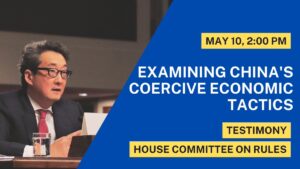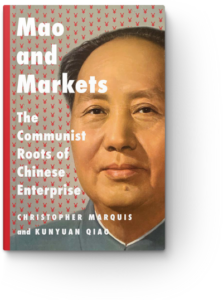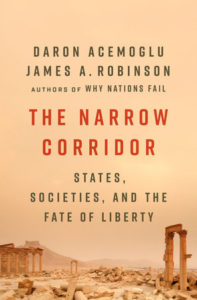The 3000-word-long G7 Hiroshima Leaders’ Communique issued by the world’s most powerful democracies lays down some important markers against the authoritarian challenge of Russia and China to the rules-based international order, reports suggest:
- First, the heads of government of the US, Canada, France, Germany, Italy, Japan and the UK have pledged to “support Ukraine for as long as it takes in the face of Russia’s illegal war of aggression”. The Group of Seven’s commitment to staying the course in defense of Ukrainian democracy and sovereignty was underlined by Ukraine President Volodymyr Zelensky’s invitation to attend the Hiroshima summit….
- Second, the commitment to intensifying the diplomatic, economic and military assistance for Ukraine and punishment of Russia underscored the message sent to China over Taiwan. The G7 has reaffirmed the importance of maintaining “peace and stability across the Taiwan Strait as indispensable to security and prosperity in the international community”. That is a warning to China that any military aggression that disturbs the cross-strait status quo would invite the same kind of Western-led economic sanctions that have rendered Russia a global pariah…..
 Third, the G7 has made clear how central Australia is to global democracies rising to meet the authoritarian challenge by strongly condemning China’s economic coercion….. The G7’s commitment to increasing “economic resilience and economic security” seeks to diversify and secure critical supply chains with reliable partners, and protect against malicious practices such as China’s industrial espionage and digital data theft, including through export controls on critical and emerging military technologies.
Third, the G7 has made clear how central Australia is to global democracies rising to meet the authoritarian challenge by strongly condemning China’s economic coercion….. The G7’s commitment to increasing “economic resilience and economic security” seeks to diversify and secure critical supply chains with reliable partners, and protect against malicious practices such as China’s industrial espionage and digital data theft, including through export controls on critical and emerging military technologies.
To many western investors, China under President Xi Jinping is a tough nut to crack. While Chinese leaders insist that they welcome foreign investment, the ruling party’s extension of control to companies, with crackdowns on domestic tech giants and more recently the “anti-spying” raids on consulting firms, including America’s blue chip Bain & Company, are puzzling to the outside world, notes analyst Verna Yu.
“One must “dig into the Maoist roots in Chinese institutions and political economy to try to understand ideas that Xi has,” says Chris Marquis, professor of Chinese management at the University of Cambridge. He believes that part of the explanation lies in the ruling party’s ideology, she writes for The Guardian:
 “In the west, it’s very hard for people to really understand the depth of control [of the Chinese Communist party]. The party sits above the government, sits above the economy and the military even.” …… With a history and sociology background, Marquis, who last year published Mao and Markets: The Communist Roots of Chinese Enterprise, has studied entrepreneurs, listed companies and provincial and city officials in China, and found that Mao Zedong’s ideology, campaigns and institutions continue to have a deep influence on their thinking.
“In the west, it’s very hard for people to really understand the depth of control [of the Chinese Communist party]. The party sits above the government, sits above the economy and the military even.” …… With a history and sociology background, Marquis, who last year published Mao and Markets: The Communist Roots of Chinese Enterprise, has studied entrepreneurs, listed companies and provincial and city officials in China, and found that Mao Zedong’s ideology, campaigns and institutions continue to have a deep influence on their thinking.
“Mao’s ideology and dictatorship of the proletariat comes first, reform and opening is second,” Marquis says. “This gives an indication that ‘reforming and opening’ is a means to an end.”
Investors often get seduced by the hope that an autocrat will be pro-business. But Turkish President Tayyip Erdogan, Russian President Vladimir Putin and Chinese President Xi Jinping show that those hopes don’t last. The longer authoritarian leaders stay in power, the greater the risk they will make decisions that damage their economies, Reuters’ Hugo Dixon reports:
- One reason authoritarian leaders do better at the start is they need time to establish one-man rule. In their early days, they are forced to listen to colleagues, which can prevent them going wildly off course. But as they become more entrenched, they often silence those who disagree with them. They instead surround themselves with sycophants who are too scared to challenge them.
 What’s more, strongmen – and they are almost all men – are more prone to getting into fights because national virility is part of their image. But aggression to neighbours can end up being catastrophic. This is most clearly seen with Putin, though Xi’s sabre-rattling towards Taiwan could end up being costly too.
What’s more, strongmen – and they are almost all men – are more prone to getting into fights because national virility is part of their image. But aggression to neighbours can end up being catastrophic. This is most clearly seen with Putin, though Xi’s sabre-rattling towards Taiwan could end up being costly too.
There are differences between today’s challenges and the Cold War’s, says historian William Inboden. The U.S. is “much more economically interdependent with China” than it was with the Soviet Union, Mr. Inboden notes. He worries that the Chinese Communist Party has “taken a page” from Reagan’s defense buildup by focusing not only on military mass but on weapons systems that offer an asymmetric advantage—for example, a long-range missile arsenal designed to push U.S. aircraft carriers out of the Pacific.
 Still, Reagan understood that authoritarian societies are inherently vulnerable and can be far more precarious than they appear, he tells The Wall Street Journal. “I’ve never met Xi Jinping,” Mr. Inboden says. “But I will speculate here that when he puts his head on his pillow at night, his first worry is not necessarily the United States. It’s his people: ‘How do I make sure they don’t turn against me?’ ”
Still, Reagan understood that authoritarian societies are inherently vulnerable and can be far more precarious than they appear, he tells The Wall Street Journal. “I’ve never met Xi Jinping,” Mr. Inboden says. “But I will speculate here that when he puts his head on his pillow at night, his first worry is not necessarily the United States. It’s his people: ‘How do I make sure they don’t turn against me?’ ”
Upskilling is crucial to the future of democracy, MIT Professor Daron Acemoglu, co-author of The Narrow Corridor, tells The FT.
“We have to be able to empower and increase capabilities among a diverse group of workers” — including those left behind by several decades of technology-driven worker displacement, the kind of people prone to the “deaths of despair” that economists Angus Deaton and Anne Case have written about.
Reagan’s Lesson on 🇺🇦 & 🇨🇳 from @ClementsCenter’s William Inboden
“If we’re going to ask European & Asian allies to stand with us on China,” would leaving “the festering wound of a defeated 🇺🇦 in their backyard” help that cause? @katebachwsj https://t.co/cgPG5BW8sr
— Daniel Twining 🇺🇦 (@DCTwining) May 21, 2023







